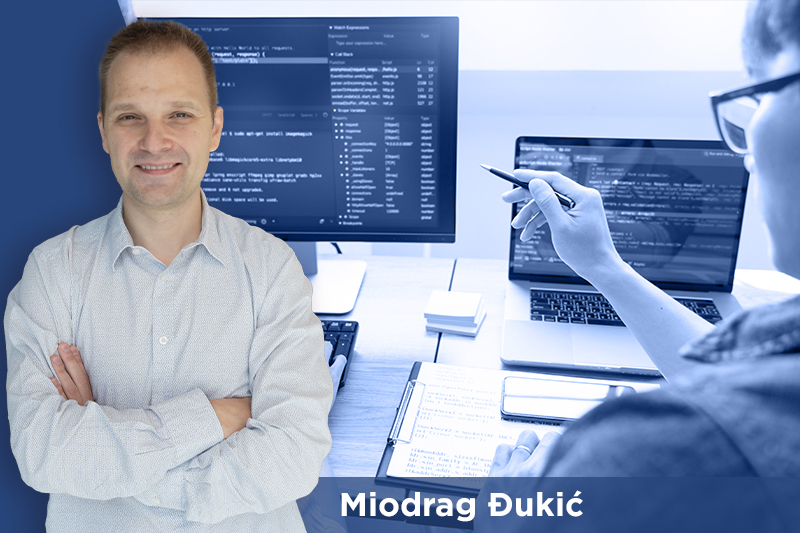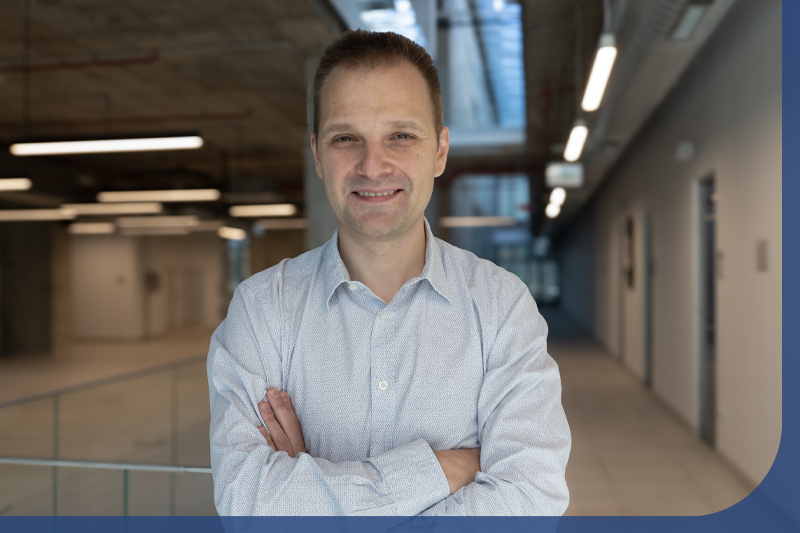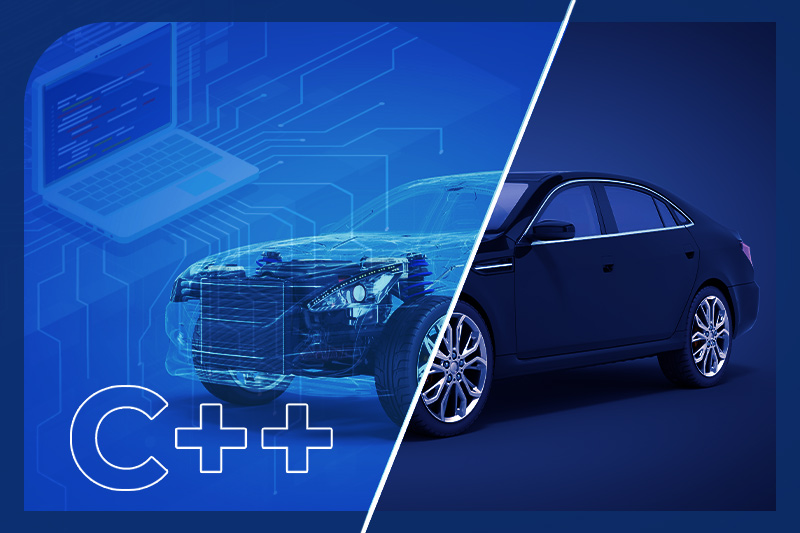
For engineering it’s characteristic that there are many solutions for one single problem. Sometimes it can be frustrating but that is the reality, and when you embrace it, you’ll understand the issues much better.
“One of my professors at the University was often said that the more ways you know how to describe or define something, the degree of your understanding increases. If you know how to do it in different ways, you understand the problem better and you can solve it better. I think for programming in C++ that idea is very important, since C++ provides many ways to solve a problem, that is – write a code. That is its very important strength, but which is sometimes – I think wrongly – perceived as weakness.” said Prof. Dr Miodrag Đukić, our instructor at NIT Academy.
“C++ is a language that has great expressive power and offers a lot of possibilities. Also, it puts great responsibility on programmers because it allows them to do almost everything. It starts from the perspective - the programmer knows what he is doing. However, it means that if a programmer does not know what he is doing, there are many more possibilities to make problems or – how it is usually phrased – shoot yourself in the foot.” explained Dr Đukić.
“I've witnessed projects collapsing on multiple occasions due to this lack of understanding. Consequently, education in this domain is of great importance, arguably more so than in certain other areas, given the increased responsibility that comes with being a C++ programmer.” - said our instructor.

In NIT courses related to C++ we teach participants the way of thinking to solve programming related engineering problems. They can learn new stuff from books by themselves, that's why our courses have a lot of practical exercises. We emphasize that, and it’s probably the most important thing that differs NIT’s from other courses that are being offered. So, through experience, through more programming they can build their knowledge.
Diverse Applicability of C++ in Modern Development
As Linus Torvalds famously said, “When I read C, I know how the assembly language (output) would look like.”. C++ builds on top of C, and in many ways maintains that characteristic that Linus nicely explained. In other words, when we want to create programs for which we care about how the output will look like, C and C++ are obvious choices.
In addition to capabilities of C, C++ has mechanisms for constructing very complex new types and abstraction layers while maintaining reasonable predictability of the resulting assembly. This prediction, i.e. correlation between the input C++ code and the output assembly enables programmer a great deal of control. This becomes especially valuable in performance-critical areas, where maximum hardware utilization is a priority.
Namely, those areas are embedded systems - in embedded systems, resources are usually quite constrained, so we do care about performance, memory usage, etc. Although in embedded systems, C++ is mostly competing with C and in many cases, C might even be a better choice there. Other notable domains include high-performance computing, game development, and sectors such as finance technology (high-frequency trading, algorithmic trading), and others. These fields require maximum performance, where nanoseconds are sometimes of significant importance.
One additional domain where C++ is seeing increasing usage in recent years is automotive industry. The main framework for developing automotive software used by practically all European and many foreign car manufacturers is called AUTOSAR, and the new version of that framework of the AUTOSAR Adaptive is implemented in C++. So essentially, all the critical programs that are run in cars need to be written in C++. Previously, the original AUTOSAR was in C so this is the new change, AUTOSAR Adaptive is written in C++.

NIT’s specialized courses on C++
Modern C++ refers to the C++ standard introduced after 2011, marked by significant enhancements and additions in the language. Over the years following 2011, several crucial features have been incorporated into the standard. When we talk about modern C++, we are highlighting these new elements, building upon the foundation of basic C++ established before 2011. C++ is widely employed in diverse projects today, and our courses emphasize the important changes introduced in 2011.
NIT’s “Basic of C++” course will set a good foundation for participants, and when they have that, they can build on that knowledge much better and much easier. As for the job opportunities - they can do pretty complex stuff in C++ with that level of knowledge and during their work, they can improve themselves, and learn many new things. “If someone has a good foundation, I think most employers will recognize that. It makes a big difference when they apply for a job, even if they at that moment do not have knowledge of many advanced topics. Also, we are offering “Modern C++”, the second level course, which expands on those key, foundational aspects of C++ and makes all the knowledge up-to-date with the newest versions of the standard.” - said Dr Đukić.
Finally, “Advance C” course can also further enrich one’s knowledge of C++. That course in very significant part focuses on hardware abstractions used in C, and because C++ relies on, essentially, the same hardware abstractions, that knowledge – unsurprisingly – enables deeper understanding of the language. The course also clearly highlights differences between C and C++, so it is even more directly applicable for students who want to learn C++ primarily.

In our commitment to ensure practical education, problem-solving mindset cultivation, and specialization in C++, our goal is to give participants a solid foundation for building up their knowledge in this dynamic field.
Whether you’re venturing into the world of embedded systems, automotive software, or even finance technology, game development, high performance computing and other domains where C++ is frequently used, expertise gained through NIT’s courses will ensure that you’re well-equipped to navigate demanding projects. These courses are not just about learning a new programming language, they’re about understanding possibilities and responsibilities that come with C++, which in the competitive job market, becomes a distinguishing factor.
To find out more about C++ courses and how to enroll visit the following links:
- Basics of C++
- Modern C++
- Advanced C



